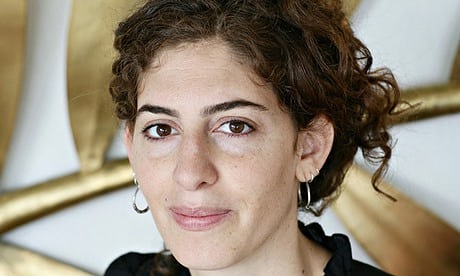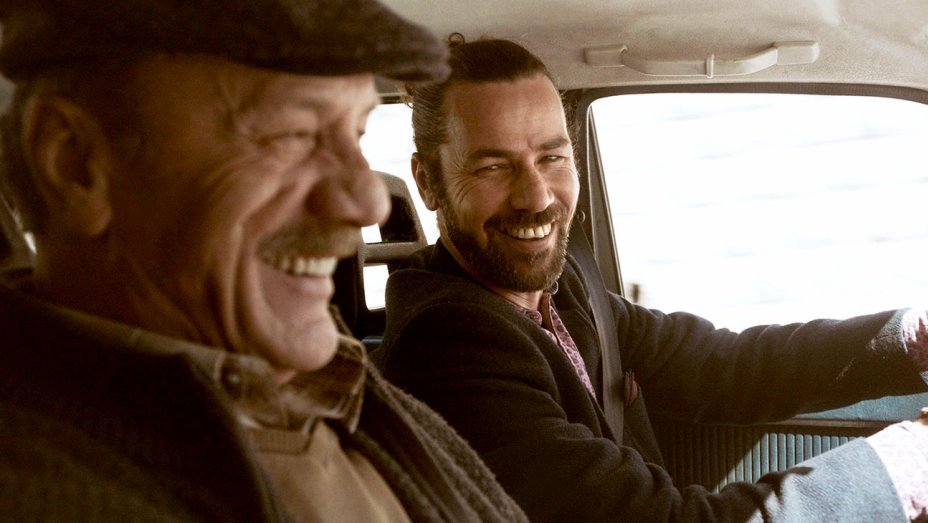Wajib, by Annemarie Jacir, won the Golden Crow Pheasant Award for the best International film at the 22nd International Film Festival of Kerala. Jacir, a female Palestinian director, was present at the festival venue; she sat face to face with this film scholar, speaking about her film and the political milieu of present-day Palestine.

The film Wajib is a welcome departure from the other films that female Palestinian directors have made. The film explores the relationship between a father and son against the backdrop of an imminent family wedding. This is a serious and wry family drama that shows characters confronting socio-political issues, both at the individual and collective level. Wajib, through a prodigal son’s Palestinian homecoming, tackles themes like filial obligations, facing white lies, and dealing with political differences within the family. The treatment of the film highlights the modest scale of production. Despite the trying circumstances, Jacir remains undaunted, “I live in Jordan [because] I am compelled to… [because of the] opposition from Israel, [curtailing] my artistic as well national freedom. These are the sort of restrictions put on us by the Israeli authorities. But I [will not be] cowed down or be defeated.”
The writing is sharp, cutting across the generation gap and touching upon the universal existential fear of survival in the face of the Israeli threat. The director hopes that a world premiere in Locarno will lead to a substantial festival interest. The editing of the film gives it a nicely paced movement, a naturalistic feel.
According to Annemarie Jacir, the film is loosely inspired by events in her own family. The domestic conflict between father and son is, at times, serious, and, at times, funny. The film beautifully handles the son’s return home (after having spent the last twelve years abroad) to join his sister’s wedding, and the bitter confrontation between the father and son at the end. It follows Shadi (Saleh Bakri) as he returns to Nazareth for the wedding of his sister Amal (Maria Zreik). Tradition dictates that he accompany his father, Abu Shadi (Mohammad Bakri), as they personally hand-deliver wedding invitations to a large and extended family, friends, and anyone else they consider important guests.
Jacir shows how Abu Shadi, a schoolteacher, in no longer in touch with his wife, who left him and the country many years ago. His son, however, is in touch with her. It becomes clear that the trauma of the separation is still raw and jarring. Shadi, his son, is an architect who now lives in Rome with his girlfriend. The initial scenes suggest that there is an unbridged distance between them, likely to cause turmoil later. They are as polite as two strangers, but niggling comments and tensions do crop up between them.
Through the course of the movie, the encounters between the father-son duo and their family members show that Abu Shadi has been less than truthful about his son. For instance, he does not mention that Shadi has given up his medical studies; he sees no reason to correct those who think that his lives in America; nor does he correct the assumption that his son plans to come back to Nazareth. In fact, Abu Shadi doesn’t let go of an opportunity to set up his son’s marriage with one of his eligible cousins. For instance, after one warm reunion, he remarks ruefully, “It’s too bad people don’t marry their cousins anymore.”

Wajib can also be called a road movie, as both father and son spend a good deal of their time in the car, driving around in Nazareth. The film seems to echo Kiarostami’s Ten (2002), in that, most of the heated interactions between the two characters take place in the car. Their clash of values, politics, and their differing views on Nazareth, keeps the audiences engaged. Everything becomes a battlefield, with Abu Shadi even being critical of his son’s wardrobe and his hairstyle. Abu Shadi’s disdain does not stem from his conservatism, but from the low opinion that he has of the “American flair” that his son seems to have adopted. This becomes a focal point of one of the confrontations between them. Their interactions are reminiscent of the kind of conversations one has with a well-meaning parent. The film doesn’t seem overtly political, but the commentary heard on the car radio, which plays in the background, refers to Israel’s seizing control of the exports from Palestine. Nazareth is depicted as a city where rubbish is piled up on the streets, traffic is impossible, and a volatile environment where minor issues easily boil over into open conflict.
Annemarie Jacir, while talking about her film, says, “There [are] a lot of unsaid things [in] Wajib which the viewers can look into. In the dramaturgical process [that I followed], I have structured [the film] to reveal [a way] of living that is, often, grey, grimy, and restricted. In the emotional journey, you can find how external facets, borrowed from foreign cultures, can often be harmful and shattering for Palestinian cultures. It is [sad] for us, those who are trapped in Israel’s power corridors. [It is a] tough and unacceptable situation.” In the film, the political undertone becomes more apparent when the two men have a conversation about why Shadi had to leave Nazareth, and how the country feels different to those who live in exile, when compared to the experience of those who still live there. The subtext is that Palestinians, even those living abroad, are still under subjugation.
Jacir ends the interaction with a strong assertion, “Palestine [has] many noted women filmmakers who have contributed [extensively] to the social and political awareness through their films. I am just one of them. I stand one shade below the eminent women directors who continue to expose religious bigotry, the Israeli invasion of Palestine, and the attempts to disrupt our [our daily lives]. We, as artists, [will always endeavour to guard and] consolidate our movement against any [fascist] invasion into our lives.”




